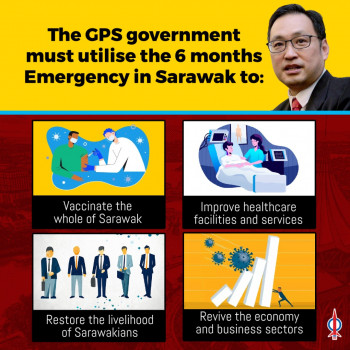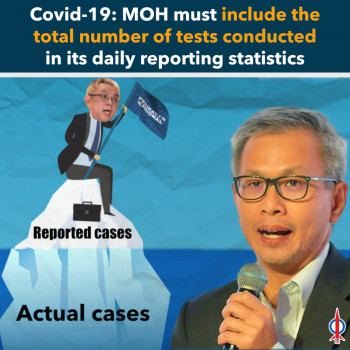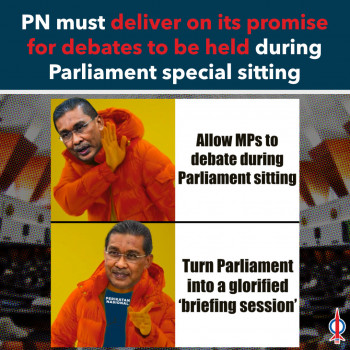Media statement by ADUN for Tanah Rata and DAPSY Deputy Chief, Chiong Yoke Kong on 19 April 2021:
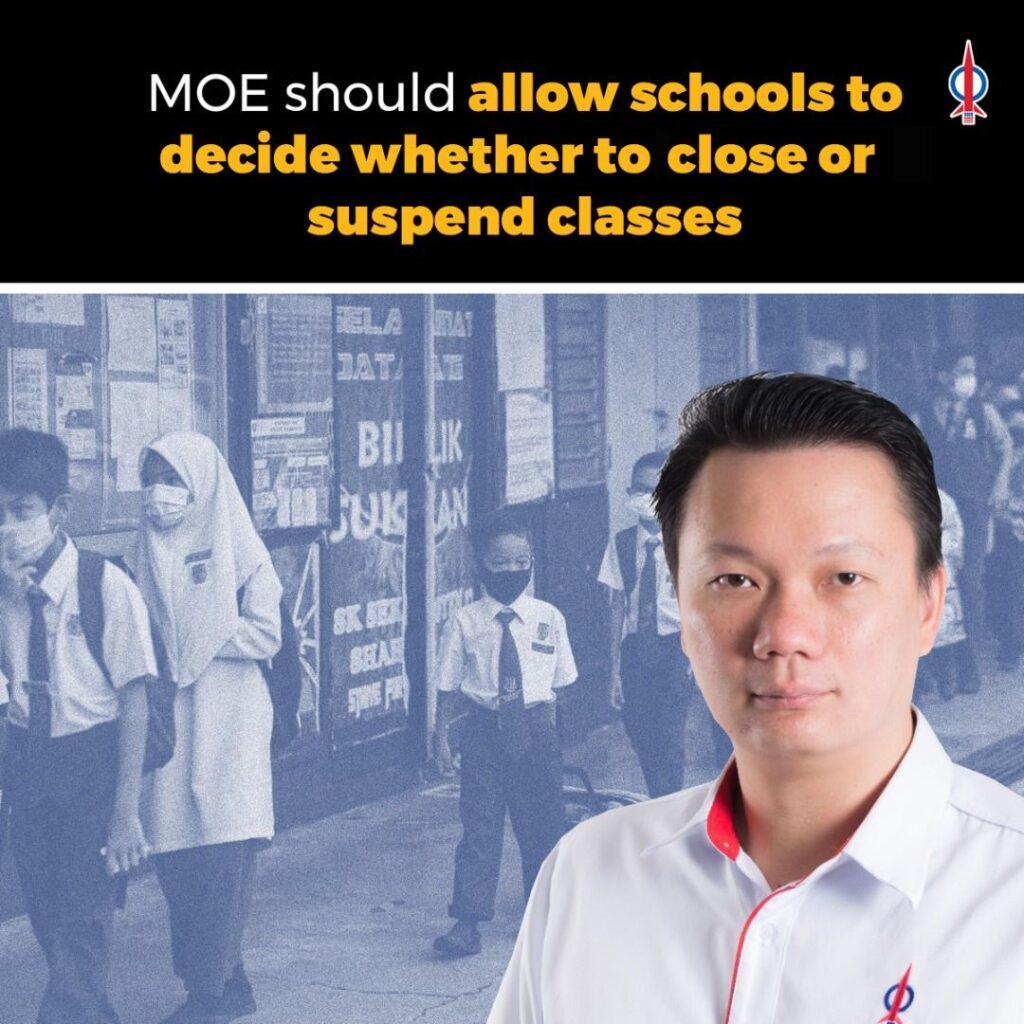
Given that SK Menson – a school in Orang Asli settlement in Cameron Highlands – recorded a new Covid-19 case, I urge the Ministry of Education (KPM) to devolve its power of suspending classes or closing schools to the respective schools or district education departments.
This will ensure that the local authorities or schools could make necessary and appropriate adjustments with regard to the situation of the pandemic in their respective areas.
It is reported that the patient is a teacher of SK Menson, who went back to his hometown and contracted the virus. Since the pandemic is already under control, the school reopens as usual, whereas teachers and students who had close contact with the patient are undergoing quarantine based on the instructions of the Ministry of Health.

When I visited the area to distribute food aid, the villagers said that since schools were closed for many months in the past, they didn’t wish to see their children’s academic performance affected again due to the pandemic. Hence, they wished that the Ministry of Health can vaccinate teachers and students as soon as possible.
It is a fact that many confirmed cases occurred in schools nationwide. Therefore, I call upon the government to devolve its power to schools, parent-teacher associations, and Pejabat Pendidikan Daerah to decide whether they should suspend classes or close schools.
When it comes to local factors, the locals always know best. The best method to protect both schools and children is that the KPM must be transparent and rope in teachers, administrators, and parents to take part in dealing with the pandemic. This will also ensure that schools are safe when they are reopened.
There are 10,220 secondary and primary schools nationwide. Hence, the KPM will be overstrained if it has to make every single decision regardless of its urgency.
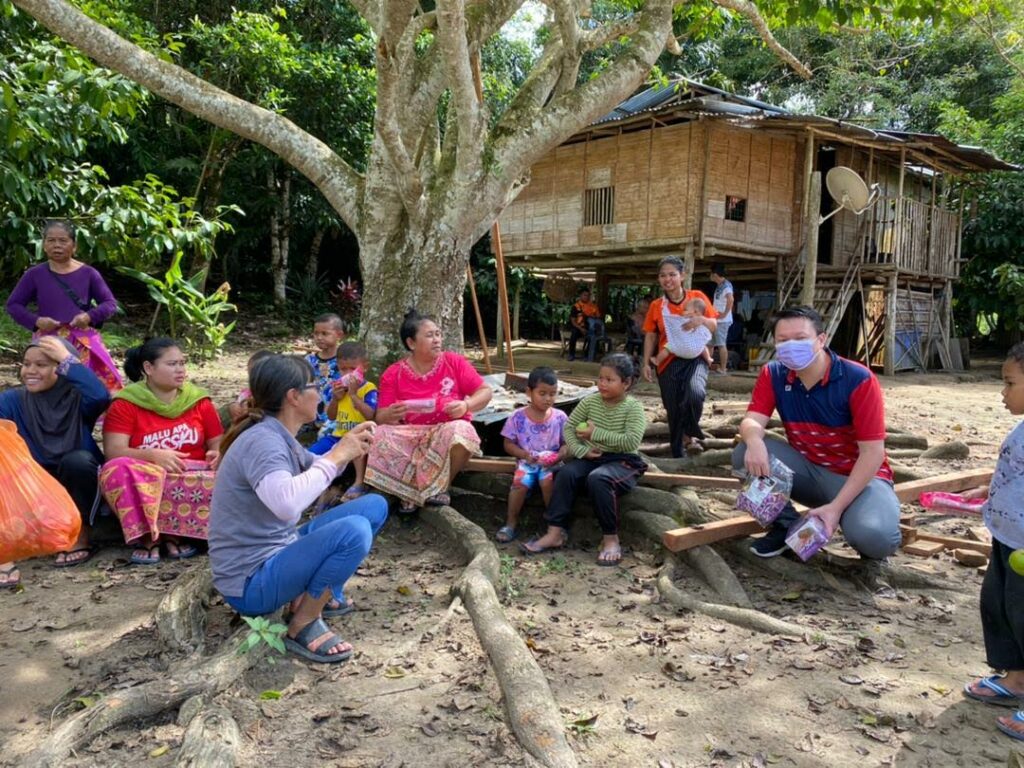
In the wake of the new wave of the pandemic, the federal government should learn to devolve its power in education to the local entities in order to reduce its burden in dealing with the pandemic.
Once the power in education is devolved to schools and parents, they can analyse and assess the risks to run classes based on local factors.
For instance, does the school have enough resources to carry out SOPs? Does it have enough space to ensure physical distancing between tables? Does it have enough materials such as handwashing facilities to prevent the spread of the virus? Can it reduce the number of students in one class? Can it run some classes by avoiding peak hours on a daily or weekly basis? Can it organise extra-curriculum activities?
In fact, the government had devolved its power to mayors, YDP of local councils, and Grade 19 enforcement officers to issue compounds for offences under the Prevention and Control of Infectious Diseases Act 1988.
As such, devolving its power in education to schools and parents is definitely attainable.
As prevention is better than cure, I call upon the government to take swift actions in policy-making processes instead of responding to challenges passively. If the government is still indecisive in dealing with the pandemic, the situation might once again be out of control.

